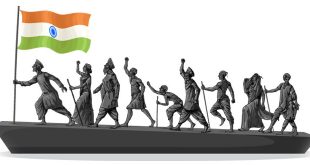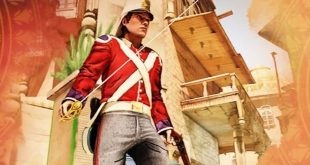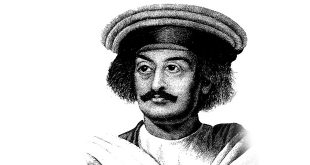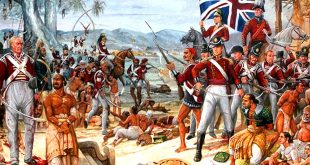NCERT 8th Class (CBSE) Social Science: India After Independence – Quiz 13 Multiple Choice Questions related to NCERT 8th Class (CBSE) Social Science: India After Independence – Quiz: The Indian Constitution was adopted on 26 January, 1950. Nathuram Godse disagreed with Gandhiji’s conviction that Hindus and Muslims should live together …
Read More »NCERT 8th Class (CBSE) Social Science: India After Independence
Question: When was the Indian Constitution adopted? Answer: The Indian Constitution was adopted on 26 January, 1950. Question: Which step has been described as revolutionary? Answer: All Indians above the age of 21 would be allowed to vote in state and national elections. Question: On what point did Nathuram Godse …
Read More »NCERT 8th Class (CBSE) Social Science: The National Movement: Second Phase
Question: What do you know about early life of Gandhiji? Answer: The national movement entered a new phase after the arrival of Gandhiji on 2 October 1869 at Porbandar (Gujarat), he received his early education in India. Later, he went to South Africa to practice law. During his stay these he …
Read More »NCERT 8th Class (CBSE) Social Science: The National Movement: First Phase – Quiz
NCERT 8th Class (CBSE) Social Science: The National Movement: First Phase – Quiz 12 Multiple Choice Questions related to NCERT 8th Class (CBSE) Social Science: The National Movement: First Phase – Quiz: The literal meaning of sarvajanik is ‘of or for all the people’. It is made of two words: sarva …
Read More »NCERT 8th Class (CBSE) Social Science: The National Movement: First Phase
Question: What factors resulted in growing opposition to British rule? Answer: All these factors resulted in growing opposition to British rule: All the section of society suffered under British rule. The peasant had to pay high taxes. The artisan was ruined by foreign competition. The factory worker received very low …
Read More »NCERT 8th Class (CBSE) Social Science: Colonialism And Urban Change
Question: Name the two industrial cities in Britain. Answer: Leeds and Manchester. Question: Name the cities that were de-urbanised in the 19th century. Answer: Surat, Machlipatnam and Seringapatam. Question: Why were the main streets of Chandni Chowk and Faiz Bazar made broad? Answer: They were made broad for royal processions to pass. …
Read More »NCERT 8th Class (CBSE) Social Science: Reforms In Indian Society – Quiz
NCERT 8th Class (CBSE) Social Science: Reforms In Indian Society – Quiz 11 Multiple Choice Questions related to NCERT 8th Class (CBSE) Social Science: Reforms In Indian Society – Quiz: To fight socio-religious evils, many reform associations were formed in the nineteenth century. Some of them were – Brahmo Samaj, …
Read More »NCERT 8th Class (CBSE) Social Science: Reforms In Indian Society
Question: Why are social reformers described so? Answer: Social reformers are described so because they felt that some changes were essential in society and unjust practices needed to be rooted out. Question:How did reformers bring changes in society? Answer: They brought changes in society by persuading people to give up old …
Read More »NCERT 8th Class (CBSE) Social Science: Education And British Rule – Quiz
NCERT 8th Class (CBSE) Social Science: Education And British Rule – Quiz 10 Multiple Choice Questions related to NCERT 8th Class (CBSE) Social Science: Education And British Rule – Quiz: Calcutta Madrasa was set up to promote the study of Arabic, Persian and Islamic law. The Hindu College was established …
Read More »NCERT 8th Class (CBSE) Social Science: Education And British Rule
Question: Name the different languages that William Jones studied. Answer. Greek, Latin, English, French, Arabic and Persian. Question: Why was Calcutta Madrasa set up? Answer: Calcutta Madrasa was set up to promote the study of Arabic, Persian and Islamic law. Question: Why was the Hindu College established in Benaras? Answer: …
Read More » Class Notes NCERT Solutions for CBSE Students
Class Notes NCERT Solutions for CBSE Students




